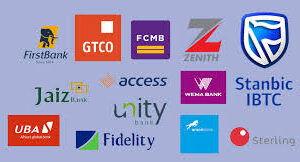Stakeholders in Nigeria’s financial sector are raising alarm over an alarming increase in bank fraud cases, with billions of naira lost to fraudsters each month.
The Financial Institutions Training Centre (FITC) has reported a sharp rise in fraudulent activities in its third quarter of 2024 Fraud and Forgery Report, revealing a staggering 65 per cent spike in fraud cases and a 105 per cent increase in the amount involved compared to the previous quarter.
The report disclosed that Nigerian banks reported 19,007 fraud cases in the third quarter, up from 11,532 in the second quarter.
Fraudsters attempted to steal N115.9 billion during the quarter, a dramatic increase from N56.6 billion in the second quarter. However, despite this surge, the actual losses amounted to N10.1 billion, a 75.4 per cent decline compared to N42.8 billion lost in the second quarter.
Cumulatively, Nigerian banks have lost an estimated N53.4 billion to fraud in the first nine months of 2024, a significant rise compared to N9.4 billion lost throughout 2023.
This trend underscores the growing sophistication of fraud tactics, particularly in the digital realm.
Dr. Chizor Malize, Managing Director and CEO of FITC, warned that the escalating fraud is eroding trust in Nigeria’s financial system.
“The increasing rate of fraud affects businesses and erodes confidence in financial services. Fraudsters now exploit all transaction channels, including web platforms, mobile apps, and POS systems,” she said.
She highlighted the potential of Artificial Intelligence (AI) to combat digital risks and called for its widespread adoption to address the surge in fraud effectively.
“AI can play a critical role in mitigating risks and strengthening the stability of the financial system,” she added.
Similarly, Mr. Pattison Boleigha, CEO of Pattison Consulting Limited, emphasized the importance of robust governance and regulatory oversight.
“Regulators need training on emerging technologies, and there must be increased collaboration among consumers, operators, and regulators to fight fraud effectively,” he noted.
Mrs. Favour Femi-Oyewole, Group Chief Information Security Officer of Access Bank, emphasized the need for embedded security in banking operations.
She advocated for machine learning and broad-based cybersecurity measures to tackle fraud risks. “We must collaborate to combat cyber threats, as we face a common enemy,” she stated.
The FITC report highlights prevalent fraud channels; including computer/web platforms, mobile transactions, and POS systems, with card-based fraud witnessing a 54.2 per cent increase from the second quarter to the third quarter.
Cash-related fraud also surged by 125 per cent, while cheque-related fraud cases dropped by 48.8 per cent. These patterns reflect the growing reliance on digital transactions, which fraudsters are increasingly exploiting.
Experts agree that combating fraud will require a multi-pronged approach, leveraging emerging technologies, enhancing consumer awareness, and fostering collaboration among stakeholders.
As Dr. Malize pointed out, addressing these challenges is vital to restoring trust and ensuring the resilience of Nigeria’s banking sector.
